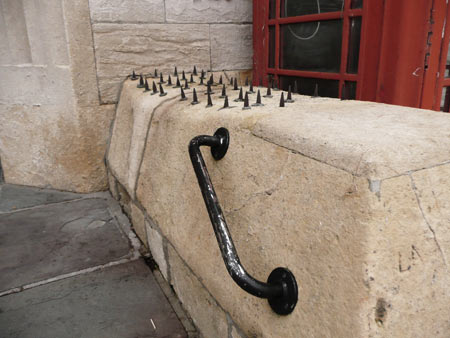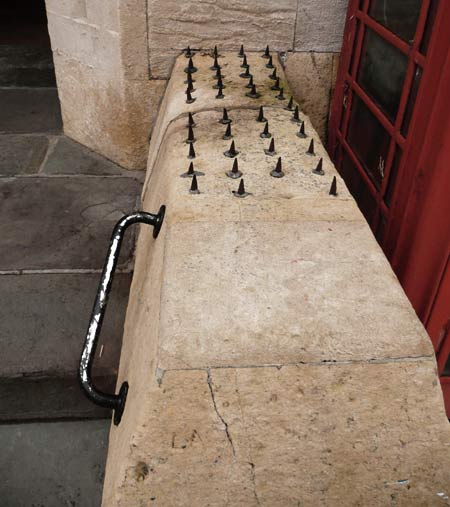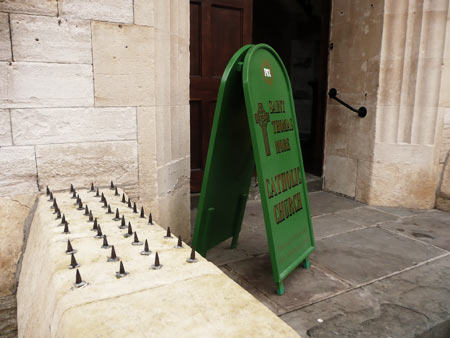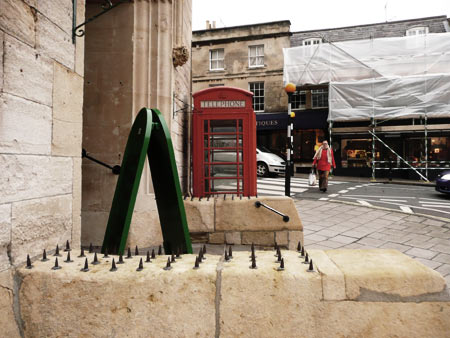
Giving with one hand, and taking away with the other.
The juxtaposition of hand rails and anti-sit spikes outside this church in Bradford-on-Avon, Wiltshire suggests a particular configuration of design priorities: helping people climb the steps, but forbidding anyone sitting on the wall.
Are the targets different groups of people? We might think so: older people may have more difficulty climbing the steps, and so be more likely to need hand rails, and younger people might be more likely to be ‘hanging around’ outside, and thus ‘need’ to be ‘discouraged’. This might be a simple case of discriminatory architecture, aimed at excluding one group while welcoming another.
But then older people like sitting down too. People in general like sitting down. Is this a case of cutting off your nose to spite own face? Whatever the ‘backstory’ is, the intent behind the different features, and the decision-making process (the spikes look older than the rails) would be interesting to know.



{In|Ex}clusive Design
Architecture, Architecture & urbanism, Blog, Britain, Children, Design, Design philosophy, Design with Intent, Designed to injure, Discriminatory Architecture, Do artifacts have politics?, Embedding code, Exclusion, Interaction design, Political design, Social engineering, Teenagers, Underclass, Urban

Pingback: By Any Means Necessary: Dirty Tricks in Britain’s War Against Teenagers | We Interrupt